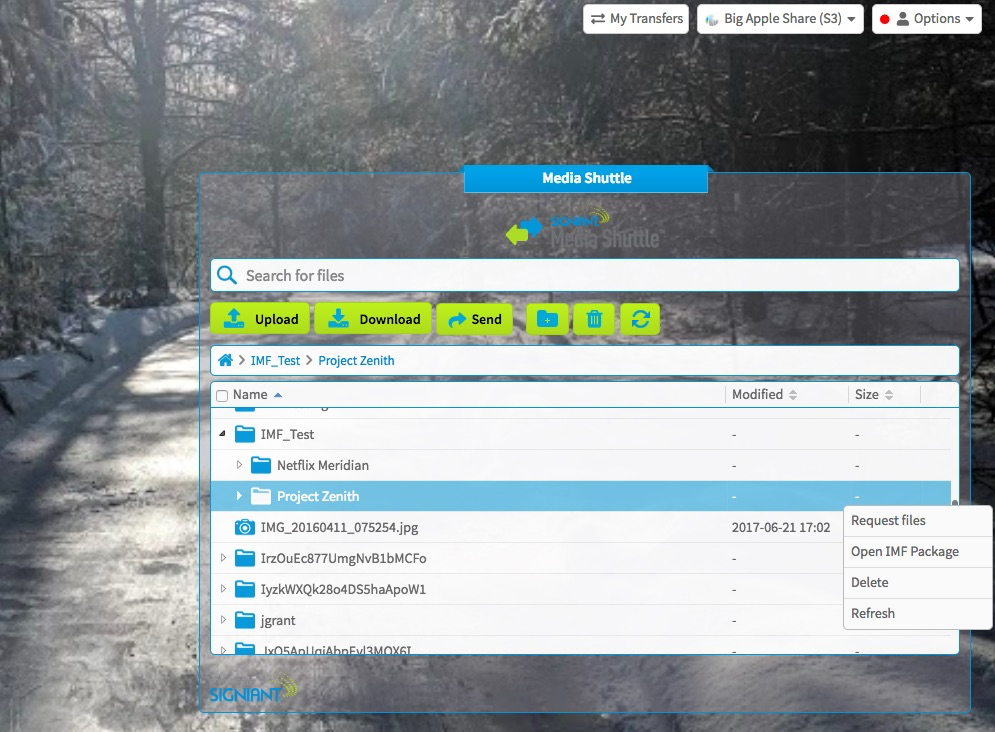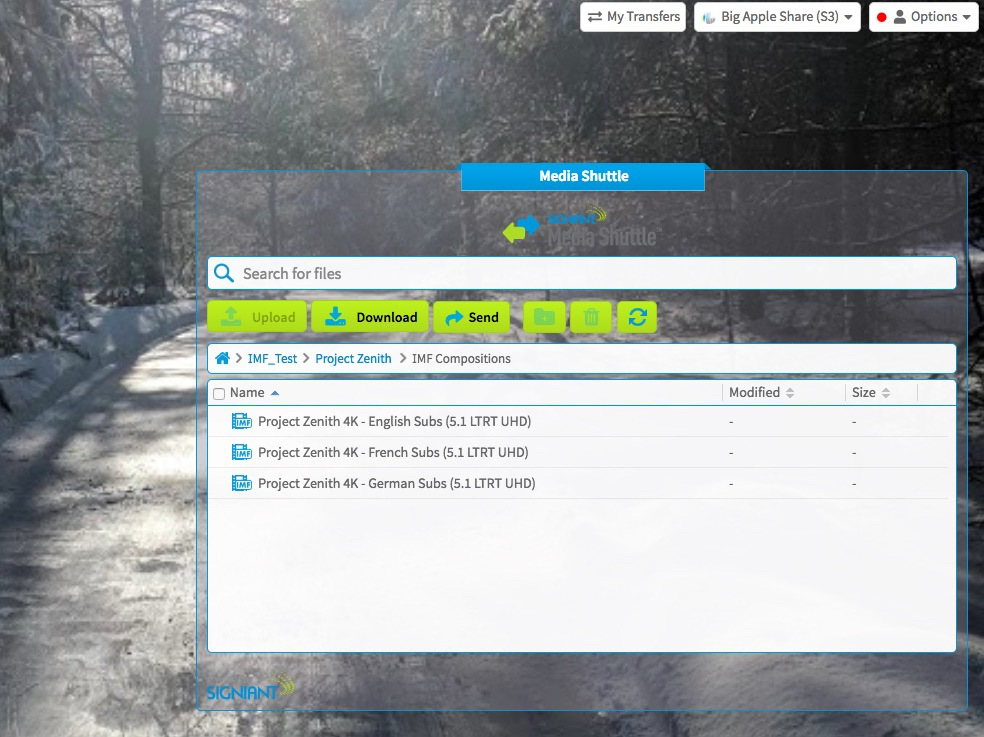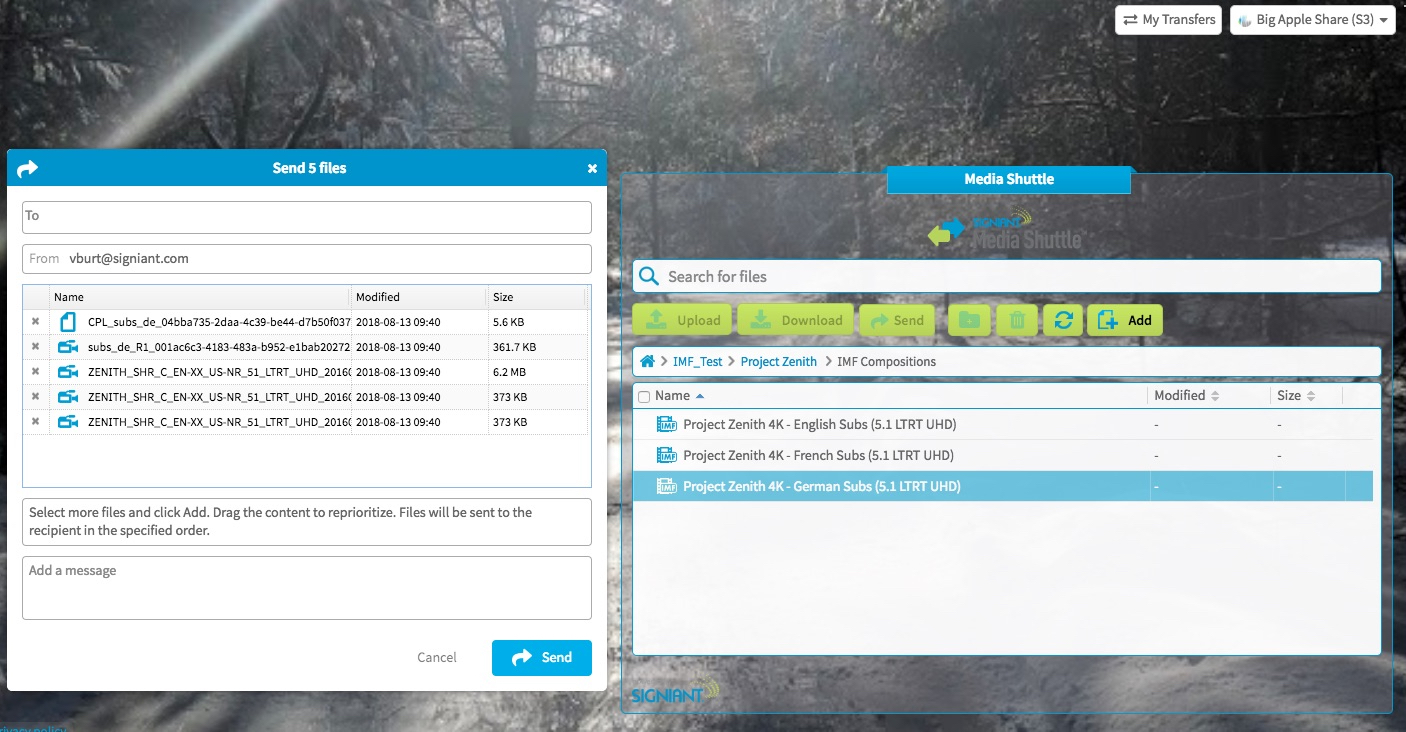Media Shuttle’s New IMF-Aware Capability Makes it Easy and Secure
Over the last few years, Media Shuttle has steadily become the de facto standard for media companies to easily and securely access a shared pool of content, with more than 400,000 users worldwide. Media Shuttle’s growth is indicative of a much larger trend in the industry — the growing demand for content across platforms, devices and countries — a trend that also influenced the creation of the IMF (Interoperable Master Format) standard from SMPTE (The Society of Motion Picture and Television Engineers).
Today, more and more versions of a single program are generated as the asset is localized for audiences around the world and packaged for different outlets. In the absence of a standardized mastering format, the process of creating and exchanging multiple versions can be chaotic and highly inefficient. Important information about the original production can be lost along the way, image quality is often reduced, and extra resources are unnecessarily consumed. The IMF standard brings some sunshine to the process by defining a “container” that holds video and audio essence files, metadata, and instructions for building various versions. IMF has recently been gaining adoption across the industry, particularly in broadcast and digital distribution.
However, as powerful as the IMF standard is, it’s also quite technical and not user-friendly in nature. IMF master files are typically stored in a single location and access is given to everyone that needs it. But that places burden on each person to browse the IMF folders and locate the files (with typically long and ugly names) required for the version they want to create.
Media Shuttle and IMF are a perfect match
As a SaaS solution vendor with a large user base, we’re continuously getting feedback from the market on emerging trends. When IMF started gaining traction among Media Shuttle users, our product team spoke with customers about the key challenges with the format and added IMF-awareness into the product.
The new capability makes IMF far easier to work with, while providing security to proprietary content. If your company is still using FTP, Media Shuttle is a fast and user-friendly FTP replacement that can keep IMF files secure.
Media Shuttle’s IMF aware capability helps end users more readily access the individual assets they need. For example, with a Media Shuttle share portal and an IMF master file stored in Amazon S3 cloud storage, in-country team members can select specific assets required to generate the local version of the program and download them.
Here’s a quick mock user flow on a Media Shuttle share portal.
1. User chooses Open as IMF option for folder containing IMF content.

2. Media Shuttle identifies CPLs in the folder and provides a user-friendly list of descriptive names.

3. User selects a specific CPL and Media Shuttle automatically populates the Download or Send pane with the files referenced by the CPL.

That’s it. Though there’s a lot happening behind the scenes, Media Shuttle’s IMF awareness makes it easy to take advantage of the fast-growing standard and securely transfer media files.


